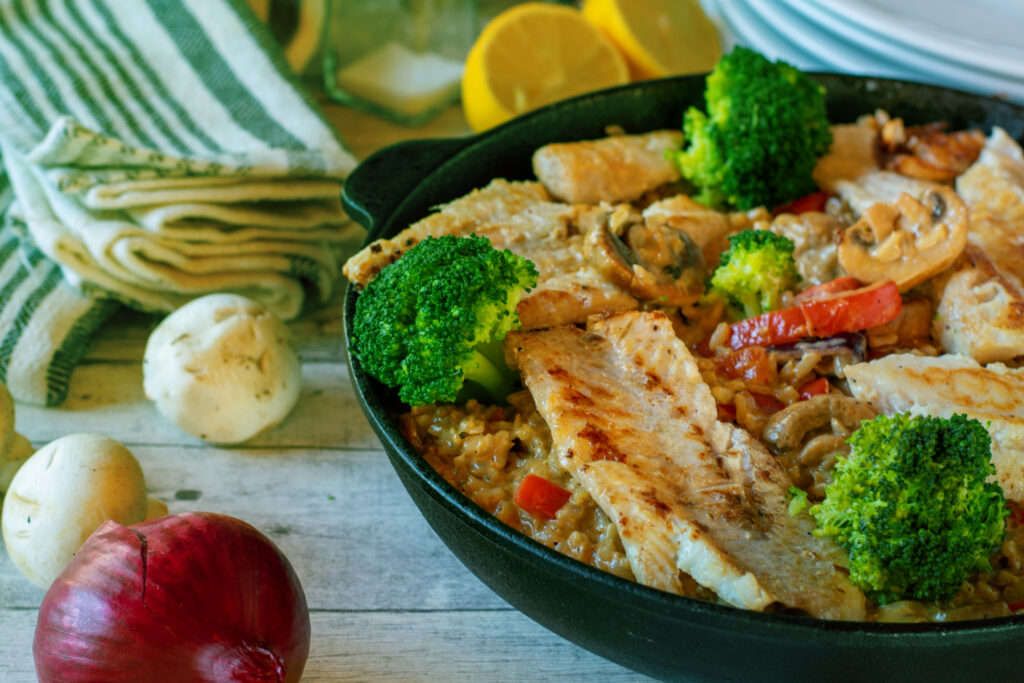You don’t need to spend your days chomping on staples and chewing on aluminum foil to face issues caused by heavy metals.
These substances are already in many of the products that you use.
So, how do these heavy metals affect your health?
Well, there are certain substances in your diet that are helpful in small doses. Just look at iron, for instance – it’s crucial to healthy blood cells.
However, over-exposure to too many heavy metals in your food can sometimes cause problems. That’s one of the reasons why countless people are beginning to explore the concept of heavy metal detox.
People in search of a healthier way of life often say that heavy metal detoxing gives them more energy, stamina, and even less stress.
How do you avoid heavy metals?
One interesting thing worth noting is that increased exposure to heavy metals doesn’t always mean you’re eating the wrong foods.
Certain foods like leafy greens can sometimes contain more heavy metals because they absorb a lot of properties from the water, air, and soil around them.
Heavy metal poisoning may occur as a result of industrial exposure, air or water pollution, foods, medicines, improperly coated food containers, or the ingestion of lead-based paints.
The good news is that a heavy metal detox doesn’t have to change your entire life (or your diet). Instead, it’s about being more aware of the foods that you eat and how they affect your body.
In 2019, a systematic review found that heavy metal poisoning is becoming a more prevalent issue in the modern world. You might be suffering from symptoms right now – and not even realize it.
Crucially, your exposure to heavy metals doesn’t just depend on the foods you eat.
While meals can play a big part in how much heavy metal you consume, your environment, and the air you breathe makes a difference too.
Some people are so over-exposed to metal toxins that they need to go through a process called chelation to balance their systems again.
Heavy metal detox: Symptoms of over-exposure
For most people, the first step in a heavy metal detox will be assessing how you feel now, and what your current habits are. Symptoms of heavy metal toxicity differ depending on various factors.
Sometimes, long-term exposure can lead to headaches and stress. Other times, the result could be abdominal pain and sickness.
The longer you’re exposed to a specific heavy metal, the greater the risk becomes.
Acute heavy metal detox symptoms include:
- Headaches
- Cramping and abdominal pain
- Diarrhea
- Vomiting
- Fatigue
- Trouble breathing
In more advanced stages of heavy metal poisoning, you might notice issues like brain fog, visual disturbances, or an inability to sleep. Some patients say that they suffer periods of paralysis, burning sensations throughout their body and more.
Serious symptoms of metal toxicity require professional treatment and chelation. However, some doctors may also recommend changing your diet and trying a detox to improve your current health.
A heavy metal detox works to rid your body of symptoms by binding to the extra metal in your body and removing them. This way, you can balance the substances in your body.
Studies suggest that people with low, but regular exposure to heavy metals may be able to avoid various chronic conditions with detoxing.
The best foods for a heavy metal detox
Some experts recommend taking heavy metal detox supplements with high doses of vitamin C, and other substances that remove toxins from the body. Most nutritionists will simply advise you to change parts of your diet.
The good news is that it’s pretty easy to conduct your own heavy metal detox at home. Some of the ingredients required are:
- Foods rich in vitamin C
Vegetables and fruits with high levels of vitamin C help to mitigate the damage of heavy metals. These “antioxidant” foods convert toxins into a form that you can easily eliminate from the body.
Lemons, for instance, restart your digestion, which gets the different parts of your stomach moving to expel toxins. Blueberries are a particularly popular choice for vitamin C and other helpful substances. Blueberries are some of the healthiest berries in the world.
Salicylates in blueberries reduce inflammation and help to prevent pain. According to 1 study, eating blueberries could help to detox your brain by reducing the amount of a particular protein in the body that blocks your brain from cleansing itself.
- Flax, chia, and hemp seeds
Seeds are a great addition to any successful detox strategy. Many of the world’s best seeds, including flax, chia, and hemp, come with lots of powerful omega-3 fatty acids. These seeds are also high in fiber, making them a good choice for cleansing the colon during a heavy metal detox.
Some people may assume that the best place to go for their omega 3 is to fatty fish. However, seafood often contains a lot of heavy metals – particularly mercury. If you’re trying to expel unwanted substances from your body, choose seeds over fish.
- Green foods
There are plenty of green “superfoods” out there that can help you to master your metal detox. Green vegetables and leafy foods can sometimes have their own share of heavy metals. However, these leaves also feature a lot of chlorophyll.
Chlorophyll in plants helps to detoxify the liver and increase blood oxygen levels. Some nutritionists say that people can purify their blood by eating plenty of spinach, kale, and lettuce.
If you want to try something more exotic for your detox, consider herbs like cilantro. A cilantro and kale smoothie might not sound immediately appetizing, but it’s a great tool for health.
Research says that Cilantro can directly support the chelation of heavy metals and help your body to recover from illness too.
- Beetroot
Beetroot is one of the best foodsfor people who want to do a heavy metal detox the natural way. For centuries, beetroot has stood out as a powerful antioxidant and anti-inflammatory substance.
If you’ve considered the healing powers of beetroot before, then you’ll know how great it is for cleaning out your liver. Beets are packed full of substances like vitamins B3 and B6 to give you extra stamina and energy.
They also counteract heavy metals with an extra dose of iron, zinc, and calcium.
It’s the betaine in beets that drive the best results for a detox. This substance promotes digestion and makes it easier to eliminate waste from the body fast.
- Chaga mushroom
For the most part, we’ve stuck to easy-to-find foods for this of possible heavy metal detox supplements. There are plenty of alternatives out there if you’re willing to search for the right ingredients, like barley grass, or spirulina.
For the most exotic product on our list, we recommend Chaga mushroom. Chaga mushrooms are a unique kind of fungus that only grows in colder climates. The Chaga contains an amazing substance called Superoxide Dismutase.
Chaga’s super-powered antioxidant is excellent for cellular regeneration and liver cleansing. If you have a hard time finding the mushroom, you can always use a supplement powder.
Foods to avoid on a heavy metal detox
So you know which five foods to add to your heavy metal detox dream team.
Now it’s time to think about the foods you should avoid. Remember, you only need to avoid these foods during your detox. You can always add small amounts of certain ingredients back into your diet carefully later.
Be sure you talk to your doctor about your detox before you begin.They’ll be able to advise you on how to do it safely.
The number one food to avoid during any kind of detox is processed foods with excess fats. These foods not only have little nutritional value, they also slow down your digestion.
However, it’s also worth staying away from:
- Fatty fish and longer-living fish: Options like tuna, king mackerel, and swordfish are terrible for a heavy metal detox. If you still want plenty of seafood, stick to salmon, trout, and sardines.
- Brown rice: Although we assume brown rice is healthier than white rice, it can include up to 80% more arsenic. While still not a great source of nutrition, white rice is actually a healthier and easier-to-digest carbohydrate.
- Alcohol and non-filtered water: Alcohol slows down your digestion system and forces your body to focus on a different kind of detox. Non-filtered water can also add back to the heavy metals in your system, thanks to minerals picked up in water pipes.
- Non-organic vegetables: Vegetables are great for any diet, but you need to make sure you’re getting the right ones. Leafy green veggies love soaking up cadmium – a kind of heavy metal. Try sticking with organic or balance your veggies with kale and broccoli.
Is it safe to try a heavy metal detox?
A heavy metal detox could be a great way to improve your health and transform your wellbeing. However, everyone responds to things differently.
Before you start using the tips you find for an aluminium detox online, it’s worth talking to your doctor.
A doctor or nutritionalist can provide advice on how to detox from aluminium, mercury, and countless other dangerous substances. They might also offer some heavy metal detox supplements.
Glutathione is often a good choice, as it strengthens the liver and supports the immune system.
Another good tip? Remember that adjusting your diet is only one part of a full detox. If you really want to transform your body, then it’s worth throwing some exercise into the mix. Fat tissue tends to hold onto toxins naturally.
Regular exercise will get you burning through that fat faster, so you don’t need to detox again later.
Remember, if you do decide to use a heavy metal detox, you may experience a few symptoms, like headaches caused by a change in your body chemistry, and a drop in blood pressure.
If you’re concerned about any heavy metal detox symptoms, speak to a medical professional.
ReWired: ReThink Your Life.






